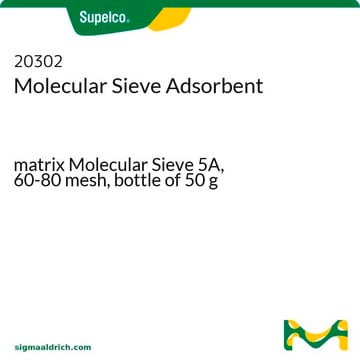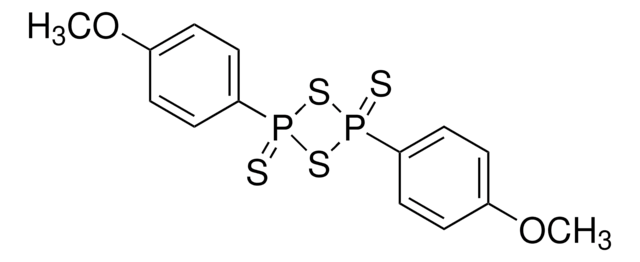374768
Glycolonitrile
55 wt. % in H2O
Synonyme(s) :
Glycolic acid nitrile solution, Formaldehyde cyanohydrin, Hydroxyacetonitrile
About This Item
Produits recommandés
Forme
liquid
Concentration
55 wt. % in H2O
Impuretés
3 mol methyl alcohol
Indice de réfraction
n20/D 1.375
Densité
1.045 g/mL at 25 °C
Chaîne SMILES
OCC#N
InChI
1S/C2H3NO/c3-1-2-4/h4H,2H2
Clé InChI
LTYRAPJYLUPLCI-UHFFFAOYSA-N
Vous recherchez des produits similaires ? Visite Guide de comparaison des produits
Catégories apparentées
Mention d'avertissement
Danger
Mentions de danger
Conseils de prudence
Classification des risques
Acute Tox. 2 Dermal - Acute Tox. 2 Inhalation - Acute Tox. 2 Oral
Code de la classe de stockage
6.1A - Combustible acute toxic Cat. 1 and 2 / very toxic hazardous materials
Classe de danger pour l'eau (WGK)
WGK 3
Point d'éclair (°F)
156.2 °F - closed cup
Point d'éclair (°C)
69 °C - closed cup
Faites votre choix parmi les versions les plus récentes :
Déjà en possession de ce produit ?
Retrouvez la documentation relative aux produits que vous avez récemment achetés dans la Bibliothèque de documents.
Notre équipe de scientifiques dispose d'une expérience dans tous les secteurs de la recherche, notamment en sciences de la vie, science des matériaux, synthèse chimique, chromatographie, analyse et dans de nombreux autres domaines..
Contacter notre Service technique








![1,8-Diazabicyclo[5.4.0]undéc-7-ène 98%](/deepweb/assets/sigmaaldrich/product/structures/120/564/5b373e23-1624-489c-8efb-692de0f96ffb/640/5b373e23-1624-489c-8efb-692de0f96ffb.png)
